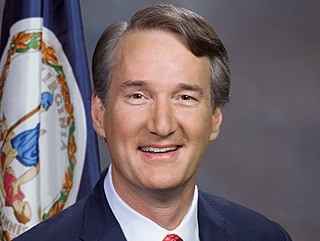Youngkin: the Viable post-Indictment GOP Alternative to Trump

The Georgia indictments against Donald Trump announced Monday night have clearly increased the degree to which he is in legal jeopardy. The lethal political impact on Trump is now also unmistakable. A poll released today by The Associated Press-NORC Center for Public Affairs Research now confirms that even before the Georgia news on Monday night, the previous Jack Smith indictments in Florida and the District of Columbia have rendered him unelectable.
According to this poll, overall, 35% of Americans have a favorable view of Trump and 62% unfavorable. While most Republicans — 74% — say they would support him in November 2024, 53% of Americans say they would definitely not support him if he is the GOP nominee. Another 11% say they would probably not support him in November 2024. The Republican Party appears destined to nominate an unelectable presidential candidate.
A poll released yesterday by Fairleigh Dickinson University, conducted by the nationally emerging wunderkind poll director Dan Cassino provides some valuable guidance regarding the attitude of Republican voters to the indictments. The negative legal developments have not yet threatened Trump’s front runner status. Yet the more GOP voters pay attention to these developments, the greater the likelihood they will consider an alternative.
One can already discern, however, that even among GOP voters favorable to Trump, there is a growing anxiety as to how the indictments have worsened his unelectability. This is particularly true among GOP donor class members, who already show a greater willingness to consider an alternative to Trump.
Who is this alternative likely to be? Not Chris Christie, although he has waged a most admirable and courageous campaign. Christie is succeeding in consolidating support for his candidacy from anti-Trump and Never Trump Republicans. This sector of the Republican electorate, however, is a distinct minority. Among the unshakable Republican majority well-disposed towards Trump, Christie’s harsh, yet justified attacks on the 45th president have only deepened the antagonism towards him. Future polls will show a continuing increase in the number and passionate opposition of Never-Christie Republicans.
Neither will the alternative to Trump be Ron DeSantis. The main impact of his campaign thus far has been to prove that even a political dolt can be admitted to Yale University and Harvard Law School. He also has increased his likelihood to win any Simon Legree award for most Notable Apologist for Slavery.
Enter Glenn Youngkin, Governor of Virginia. A capsule profile of him reveals that as distinguished from Trump, he is neither authoritarian nor corrupt. Yet on social issues, he is arguably even more ultraconservative than Trump, an advocate of a ban on abortions after 15 weeks, an opponent of the teaching of Critical Race Theory (CRT), and a perceived adversary of much of the LGBTQ agenda. This embrace of social conservatism, together with the fact that unlike Christie, he has never personally attacked Trump, makes Glenn Youngkin an acceptable alternative to the MAGA base of the Republican Party.
There was a must-read column in the Wall Street Journal this past Friday regarding a possible Youngkin presidential campaign. The column, entitled “A Republican Renaissance in Virginia?” by Kate Bachelder Odell focused on two aspects that will be vital to Youngkin in considering a White House run.
First are the excellent polling results for Youngkin in Virginia against President Joe Biden in any White House matchup. Virginia is a battleground state that no Republican candidate has carried since George W. Bush in 2004. A GOP victory in Virginia could go a long way in enabling the Republican candidate to reach the magic figure of 270 electoral votes. A Virginia Commonwealth Poll shows Biden leading former President Donald Trump in Virginia, 43-40; however, Youngkin leads Biden substantially, 44-37.
Second is the fact that Youngkin’s total political focus now is on the 2023 Virginia legislative campaign. In the bicameral legislature, Republicans currently control the lower house, the House of Delegates, while the Democrats maintain the majority in the upper house, the State Senate.
Youngkin currently shows no sign of any 2024 presidential campaign activity. As the Odell column notes, however, if the GOP captures control of both Virginia legislative houses and no other compelling GOP alternative to Trump emerges, there will be enormous pressure on Youngkin to get into the presidential race.
If Youngkin decides to enter the Republican presidential nomination sweepstakes, he will have to undertake two tasks. First, he will have to timely file for entry into the Super Tuesday primaries on March 5, 2024.
Second, he will have to plan a floor fight for the July 15-18 2024 Republican National Convention in Milwaukee to amend the rules to enable the Trump elected delegates to be released from their pledges.
There is historical precedent for such a floor fight. In 1952, Ohio Republican Senator Robert Taft entered the Republican National Convention in Chicago as the frontrunner. General Dwight David Eisenhower defeated Taft for the nomination, largely due to a successful floor fight challenging the credentials of the Taft delegates from Texas, Georgia, and Louisiana.
The 1952 Republican National Convention should be a required subject for study by Glenn Youngkin.
Alan J. Steinberg served as regional administrator of Region 2 EPA during the administration of former President George W. Bush and as executive director of the New Jersey Meadowlands Commission






Also, that makes two Republican Presidential candidates – VA governor Youngkin and former NJ governor Christie -- against their state’s participation in a market-based cap-and-trade initiative that distributes proceeds to fund state programs and projects, each hoping that Republican electorate support for them grows like wildfire.